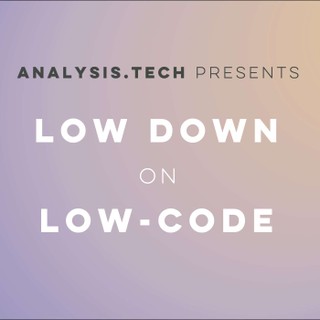In this episode of Low Down on Low-Code, hosts Dave Marcus and Francis Carden interview Graham Sheldon, the Chief Product Officer for UiPath. They discuss the evolution of UiPath's product strategy and offerings over the past 20 months, as well as its differentiated value proposition in the crowded market of low code and RPA. They also explore the concept of agentic AI and its role in UiPath's platform. Additionally, they touch on the relationship between UI automation and broader business transformation, as well as the competitive landscape, including Microsoft's role in the low code world. The conversation explores the role of AI in automation and the importance of combining AI with deterministic rules-based frameworks. It highlights the need for policies, governance, and business logic in automation, while also acknowledging the potential of AI to enable proactive and adaptive work. The discussion emphasizes that AI is not yet at a point where it can replace the capabilities of RPA and automation, but rather complements them by expanding the set of use cases.
Takeaways
- UiPath has evolved its product strategy and offerings over the past 20 months to create a more unified developer and administrative experience for end-to-end automation.
- Agentic AI is a concept that involves AI making more complex decisions and recommendations, while still involving humans in the loop for validation and critical decision-making.
- UI automation still plays a crucial role in business transformation, especially for legacy systems and processes that are not yet ready for complete reimagining.
- UiPath collaborates with other companies, such as SAP and Microsoft, to provide seamless end-to-end automation solutions and leverage their respective strengths.
- The role of UI automation in the broader low code world is still relevant, as there are specific use cases where deterministic decisions and reliability are essential. Policies, rules, and governance are crucial in automation, while AI complements them by enabling proactive and adaptive work.
- AI is not yet advanced enough to replace the capabilities of RPA and automation.
- AI expands the set of use cases for automation, allowing for more front-end, flexible, and adaptive work.
- UiPath's partnership with Microsoft integrates Copilot and Autopilot to enable action and complete work across different systems.
👉 For more interactive sessions with our hosts and industry experts, visit analysis.tech.
Timestamps
00:10 - Introduction and Background
03:20 - Evolution of UiPath's Product Strategy and Offerings
12:18 - Understanding Agentic AI and its Role in UiPath
16:02 - The Role of UI Automation in Business Transformation
20:16 - Collaboration with Other Companies in the Automation Space
27:25 - UI Automation in the Low Code Landscape
29:26 - The Role of AI in Automation and the Importance of Policies and Governance
31:49 - Expanding the Set of Use Cases for Automation with AI
32:49 - The Limitations of the Chat Metaphor and the Integration of Copilot and Autopilot
36:17 - Process Orchestration and Modeling Processes
Tune in now and get the Low Down on Low-Code! 🎧



